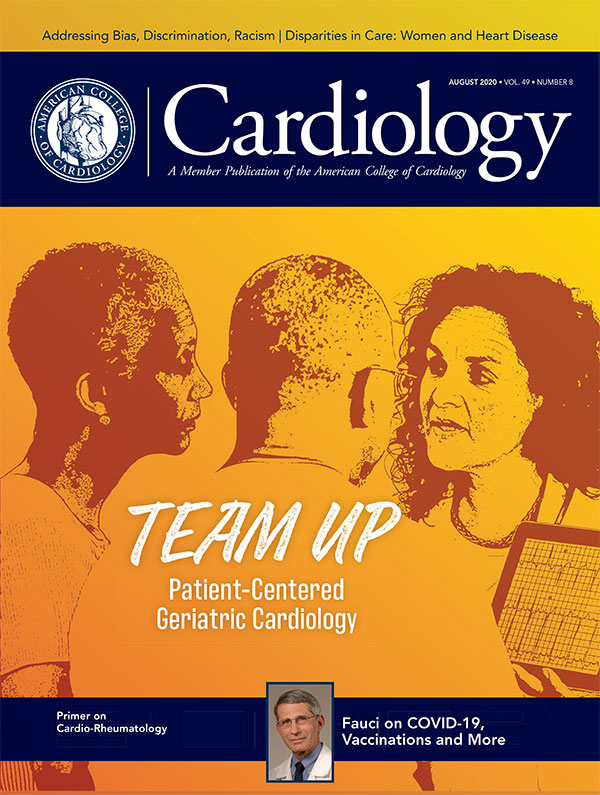Feature | Where There is Crisis There is Opportunity: A Message from the ACC Diversity and Inclusion Task Force

Together, the glaring disparities in COVID-19 infection and treatment, renewed evidence of longstanding police brutality and the poignancy of the Black Lives Matter movement have crystalized the tragedy that is structural racism in the U.S. This reality has persisted for centuries and continues to result not only in lives lost but also generations stripped of opportunity.
Bias, discrimination and racism have no place in medicine. None of it should stand. Given the leading role of cardiologists in American medicine, it is time for leaders to lead.
Earlier this year, the ACC, Association of Black Cardiologists (ABC) and American Heart Association issued a joint statement denouncing racism and violence towards Black communities. The leaders of all three professional organizations acknowledged the 'profound grief and stress triggered by [recent] events' and pledged to address the 'unacceptable disparities among our most vulnerable populations... through policy and by working with affected communities.'
This is an unprecedented statement of solidarity. In follow-up, the ACC has formed a Board of Trustees Task Force on Health Equity, which is charged with coordinating a College-wide approach to improving equity for patients and populations, including access to care, addressing systemic racism and exploring social determinants of health, all of which impact health disparities.
In an open letter to ACC members, ACC President Athena Poppas, MD, FACC, acknowledged that these issues affect cardiology clinicians and declared ACC's obligation to engage: "We must persevere in our commitment to creating a profession – and a society – that recognizes and values every human being; that promotes diversity; that encourages and enables inclusion; and fights to address disparities." We strongly support our ACC President.
With the creation of the ACC Diversity and Inclusion Task Force in 2017, the ACC explicitly recognized both the need for this work and its importance, noting that our Mission cannot be achieved without including "people, as members and as leaders, who provide a diversity of backgrounds, experiences, ideas and perspectives."
The current crisis makes it clear that we also need to acknowledge structural racism in our profession, our health care and academic institutions, and yes, even in our College. We further need to acknowledge that this has limited access to our profession, adversely affected cardiologists of color in their careers and allowed flawed clinical decision-making which has perpetuated health disparities. These disparities need to be eradicated.
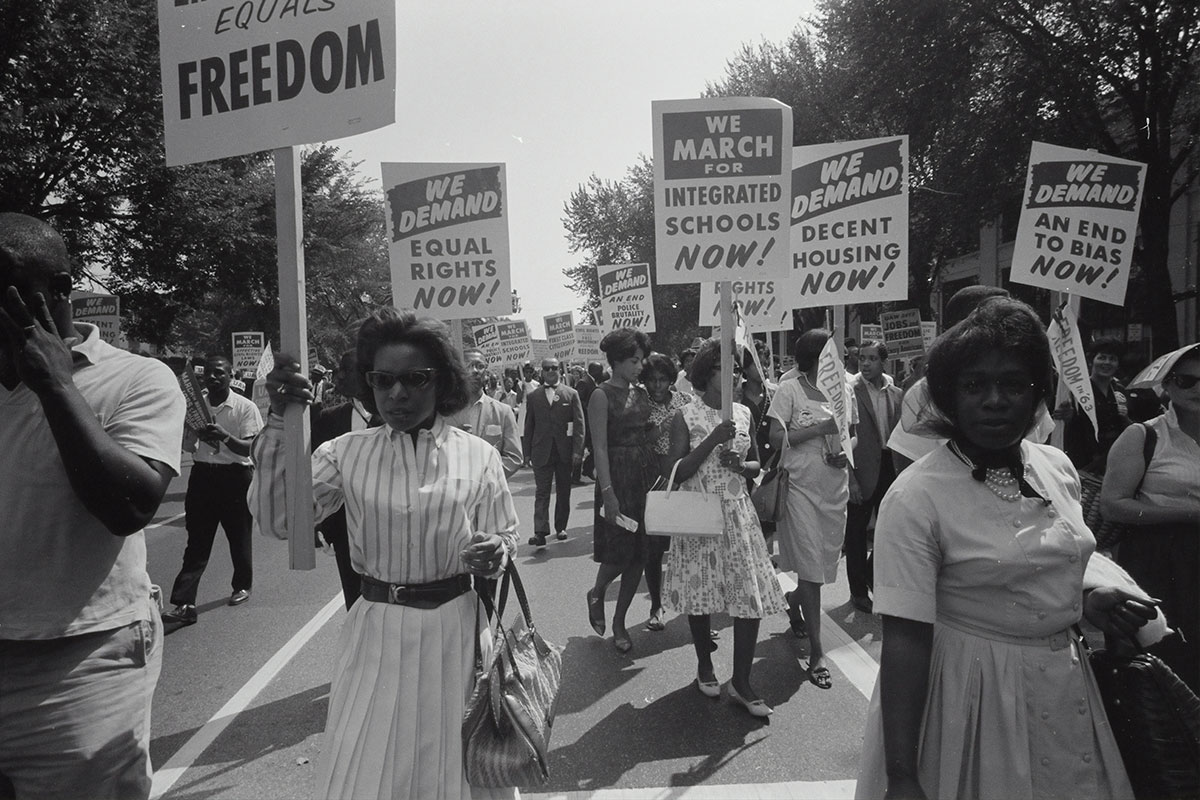
Racism cuts to the core of our lives and impacts all of us. The emerging generation of physicians has made clear they will not allow racism in their world. We concur; this is our moment to create a better normal.
In its short existence, the Diversity and Inclusion Task Force has been a powerful and effective change agent in the College and in the profession, supporting members and championing equity and inclusion for all.
As an ACC entity charged with addressing racism's impact on the workforce and professional issues, we are enlarging and intensifying our efforts to tackle overt and underlying factors that discriminate against or in any way disadvantage cardiovascular professionals, teachers, learners and investigators.
While we are building on a strong foundation of ongoing diversity and inclusion initiatives and leadership support, and our past successes provide powerful tailwinds, this is not just business as usual. We are mobilizing resources and people from across the College as partners and leaders.
We seek – and need – robust member involvement and contributions.
We are approaching this work in four ways. We intend to:

Listen
Active listening is a powerful tool for engagement and understanding. Core to diversity, equity and inclusion, it is essential for crafting our work in this area. We are planning a virtual listening tour designed to concentrate on, understand and respond to the experiences and needs of all ACC members: Blacks, whites, Latin-x and other ethnicities, men and women, trainees and senior members.
We will provide ACC members the space to express emotions without retaliation and with affirmation of personal experience. With the Board of Governors (BOG) and Member Sections, we will create a discussion guide and resource kit for chapter meetings to facilitate similar conversations and local solutions development. We are committed to having an annual event at each ACC Annual Scientific Session dedicated to ongoing active listening, reflection and discussion.

In the past five years, we have learned much about the face of cardiology through demographics research in partnership with the Association of American Medical Colleges, analyzing data from the Accreditation Council for Graduate Medical Education, and ACC-led surveys of internal medicine residents and ACC members.
We are mining these rich data sources for specific information about Blacks and other minorities and will deploy new, targeted surveys to more fully understand the professional lives and experiences of these groups. Together these will create benchmarks and a robust evidence base for future actions.

Learn and Inform
One of ACC's Core Values is Professionalism and Excellence; within this we seek to "Promote a culture of continuous improvement and lifelong learning." To this end, we are creating a series of resources for members beginning with an Anti-Racism Section within ACC.org/Diversity.
This central resource will include ACC policy and position papers, best practices descriptions, links to literature in medical journals and lay press, a resource center, perspective pieces, and opportunities to engage and contribute.

Also under construction are a series of online educational modules and webinars on a variety of topics including structural racism, micro-aggressions, sexual harassment and social determinants of health. There will also be toolkits on ally-ship and how to talk about racism with patients.
Live implicit bias trainings started in 2019 and will soon include "train the trainer" offerings. We will continue to develop additional new resources based on members' requests.

Act
We have augmented our already extant and robust Diversity and Inclusion Strategic Plan in two ways: by focusing and amplifying existing activities broadly addressing underrepresented cardiologists to concentrate on Blacks and other underrepresented minorities, and by adding two important strategic themes, each with their own set of activities:
Eliminate structural racism in ACC committees, structures and operations; Educate members about interpersonal and institutional racism; Ensure diversity and inclusion competency and best practices in all areas, especially governance.
Engage underrepresented cardiologists and ensure they see ACC as their professional home. In addition to these, among the most urgent issues is the pipeline: recruiting young people of color to join our ranks. Since such individuals are also scarce in medical school and residencies, efforts must run deep, to colleges and high schools and be tailored to connect with the underserved and those with low socioeconomic status backgrounds.
The Board of Governors (BOG) and Sections have been especially active in this area and are redoubling their efforts with virtual communications, engagement, mentoring, "deep pipeline" initiatives and resources, and more. A particular effort this summer is joining with other national organizations to pledge to increase diversity in cardiology training programs and leadership.
Additionally we are partnering with other societies, especially ABC, to more effectively address health equity. Our ambitious fundraising effort, ACC's Campaign For The Future, has from the outset fortuitously incorporated enhanced diversity and leadership training as foundational pillars. These resources will greatly enable our next steps.
Leadership matters. As such, we will advocate for incorporation of more Black cardiologists in the leadership development programs of the ACC. Case in point: our highly successful Clinical Trials Research Boot Camp has worked very well to introduce clinical trial research to Women in Cardiology. For this next class, the target is a minimum of 30% self-identified as Black cardiologists.

We are partnering with the 2021 Leadership Forum to ensure robust anti-racism content delivery, and will work with the Membership Committee, the BOG, Sections and the Assembly of International Governors to ensure that all leaders are trained in this area; efforts will be broadened to reach all ACC members.
We hope to reinforce this education by requiring ACC speakers and authors to certify they are aware of and agree to abide by ACC's Code of Ethics, which includes zero tolerance for discrimination and harassment, much as we now certify regarding Conflicts of Interest.

Sustain
Given the universal recognition that diversity and inclusion are essential to achieving our clinical, education and business goals, and in light of our substantial progress to date, it is tempting to envision a future in which equity prevails.
However, eliminating structural racism is hard. Change will require robust intention and unflinching execution, sustained over years and generations. We will continue and expand our listening and learning activities, including providing space for continued reflection, discussion and vulnerability.
We will continue to press for inclusion of education content on health equity and professional discrimination in all ACC venues, as well as creating and archiving new education materials for web access.
Together with the Membership and Section Steering Committees, we are developing the concept of "diversity champions" as a contingent of volunteers committed to, and well versed in, these issues who will be change agents locally and nationally.

We recognize the importance of engaging all members, and are seeking to develop means of regular communication with all those interested in diversity, equity and inclusion.
Changing ACC does not change the entire cardiovascular community. We are encouraging members to move beyond empathy to engagement. There are many options: listen and be informed; seek justice; and work locally with home organizations to incorporate anti-racist values.
We can make a difference.
We hope that you will join us in working towards a better world for all.

Pamela S. Douglas, MD, MACC
Chair, ACC Diversity and Inclusion Task Force
ACC President 2005-6
@pamelasdouglas
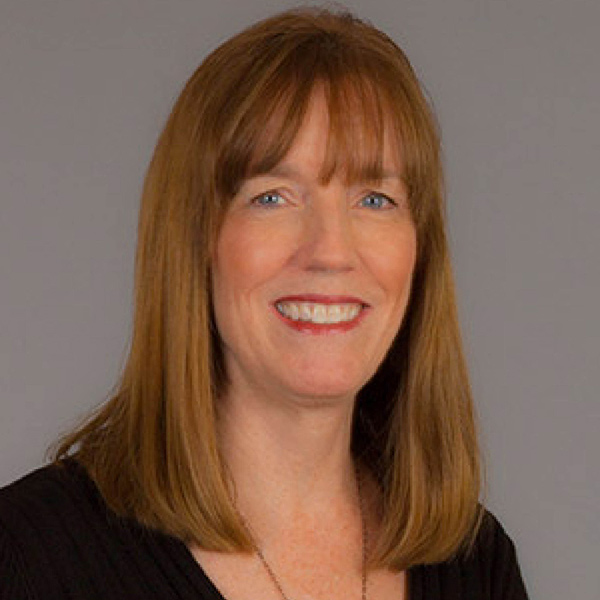
Mary Norine Walsh, MD, MACC
Vice Chair, ACC Diversity and Inclusion Task Force
ACC President 2017-2018
@MinnowWalsh
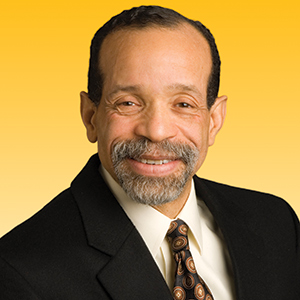
Kim A. Williams Sr., MD, MACC
Vice Chair, ACC Diversity and Inclusion Task Force
ACC President 2015-16
@cardio10s
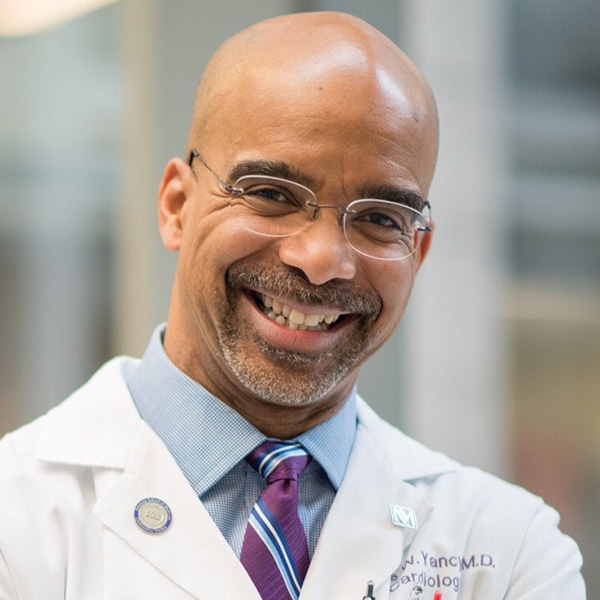
Clyde W. Yancy, MD, MSc, MACC
Vice Chair, ACC Diversity and Inclusion Task Force
AHA President 2009-2010
@NMHheartdoc
Clinical Topics: Cardiovascular Care Team, Congenital Heart Disease and Pediatric Cardiology, CHD and Pediatrics and Quality Improvement, Novel Agents
Keywords: ACC Publications, Cardiology Magazine, Racism, American Heart Association, Police, Sexual Harassment, Aggression, Benchmarking, Leadership, Trustees, Vulnerable Populations, Decision Making, Adolescent, Schools, Medical, Social Justice, Internship and Residency, Mentors, Midazolam, Empathy, Intention, Codes of Ethics, Conflict of Interest, Goals, Cultural Diversity
< Back to Listings


